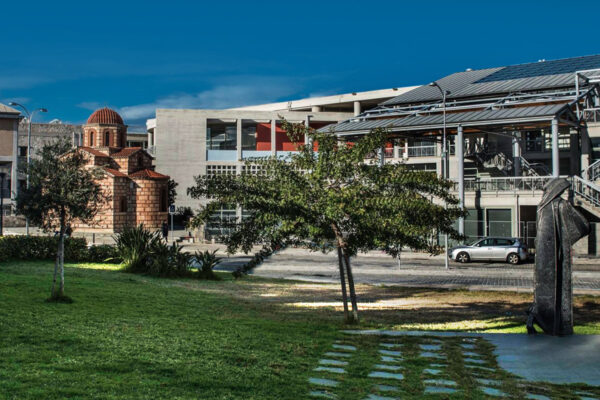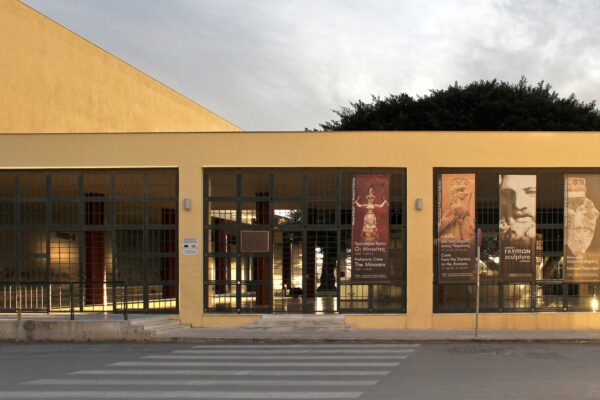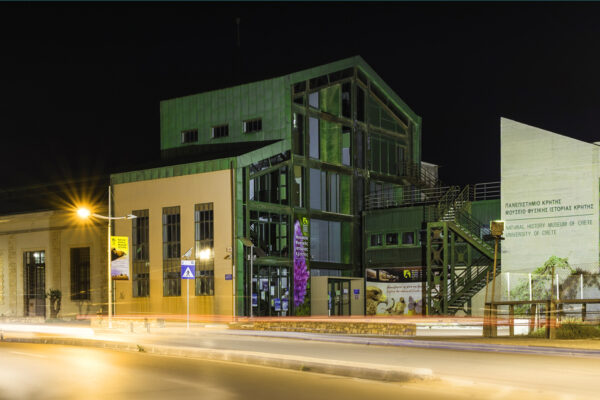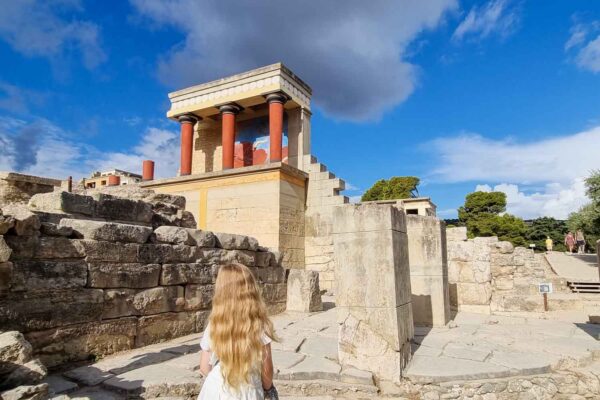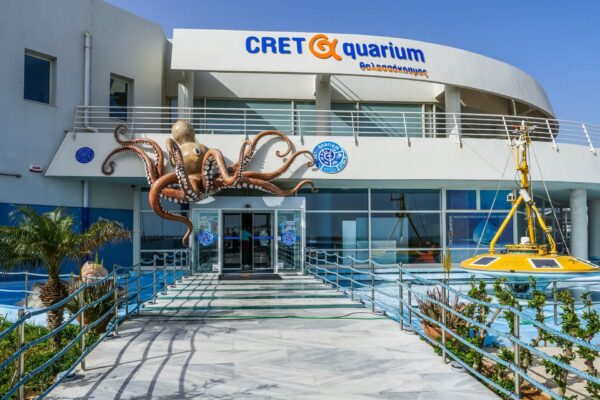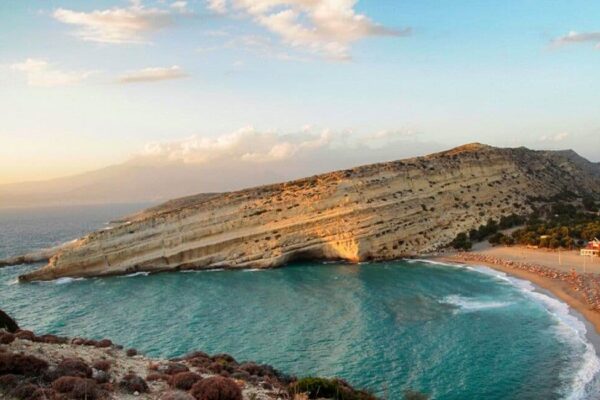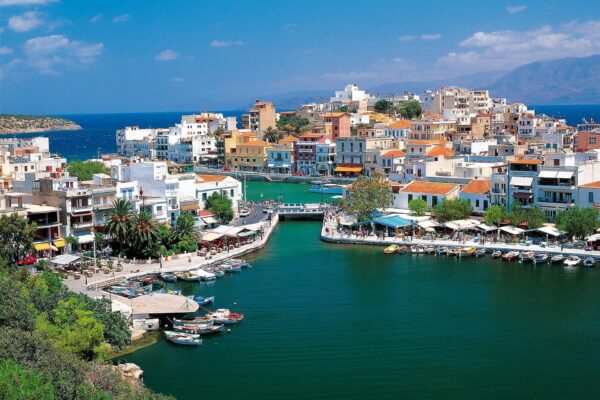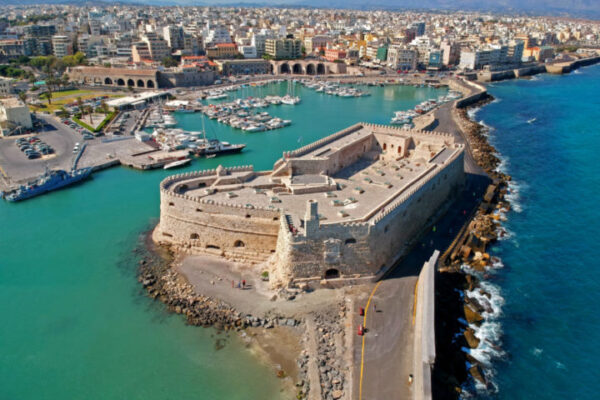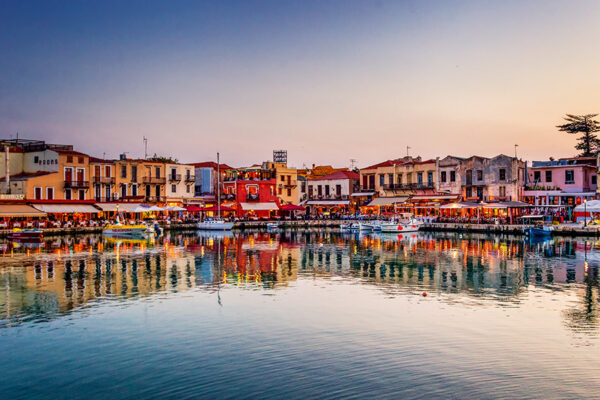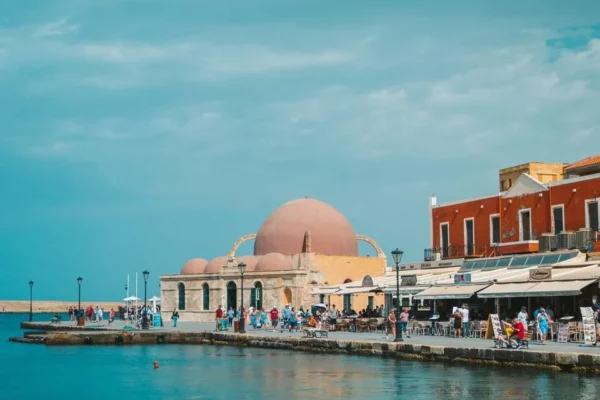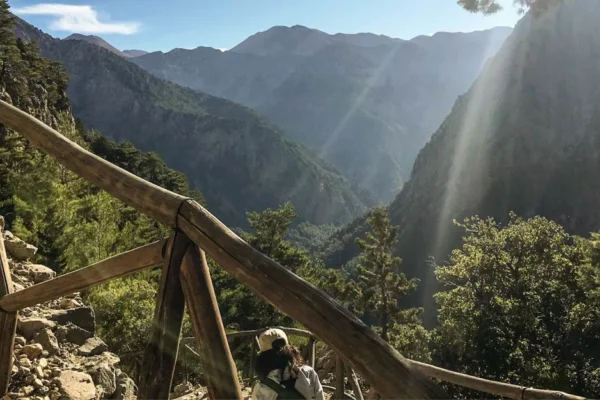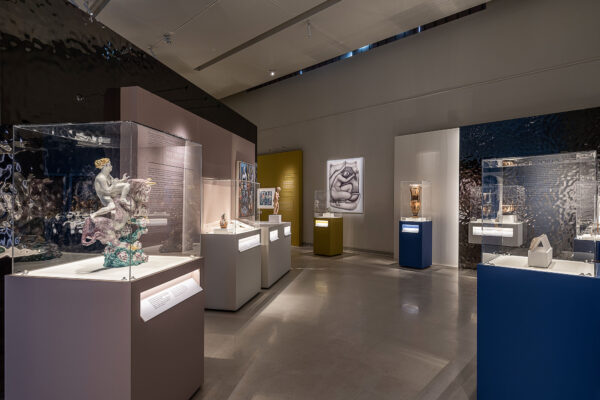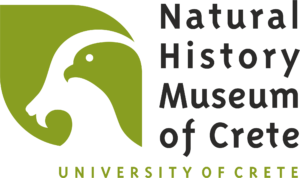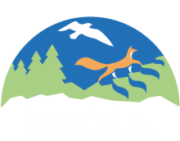10th European Malacological Congress
September 15-20, 2024
Heraklion, Crete, Greece.
Welcome to EUROMAL 2024, the 10th European Congress of Malacological Societies. The congress, organized by the Hellenic Malacological Society and the Natural History Museum of Crete, will take place at the Cultural Conference Centre of Heraklion, Crete, from 15 to 20 September 2024.
The motto of EUROMAL 2024 is “The slow side of life on a rapidly changing planet”. The aim of the conference, among other things, is to highlight the importance of molluscs in our efforts to understand and address anthropogenic impacts on the environment.
Therefore, in EUROMAL 2024 all aspects of research concerning diversity, function, ecology, evolution, behavior, utility, and conservation of extant and fossil molluscs in the 21st century is welcomed. The meeting will continue the successful tradition of the past EUROMAL congresses, and we invite everyone with an interest in molluscs to join the EUROMAL 2024 in Heraklion and to present and discuss their work.
News
Please check regularly for any updates
We are looking forward to your abstracts until 30 June 2024.
We are pleased to announce that in the framework of EUROMAL 2024 there will be field trips (on Wednesday 18th September 2024)
Key Dates
30 April 2024
30 June 2024
30 June 2024
15 - 20 September 2024
Program
You can download the preliminary program here:
Topics

Phylogenetics of molluscs: from morphology to the molecular era
Understanding the past of our planet: molluscs in paleontology
The slow smarts: behavior of molluscs
Functional molluscs: from chemistry to physiology
Molluscs in space and time: Diversity, Evolution, Ecology and Biogeography
Saving molluscs: conservation and climate change
The modern raid: invasive molluscs
Molluscs in a polluted planet: ecotoxicology of molluscs
Molluscs for humans: food, drugs and cosmetics
Molluscs in the Museums
Molluscs for the citizens
Invited Speakers

- Robert A.D. Cameron (The Natural History Museum of London, UK)
- Diana Delicado (Department of Animal Ecology & Systematics, Justus Liebig University, Germany)
- Edmund Gittenberger (Naturalis Biodiversity Center, The Netherlands)
- Mathias Harzhauser (Natural History Museum Vienna, Austria)
- Joris Koene (Amsterdam Institute for Life and Environment, Vrije Universiteit Amsterdam, The Netherlands)
- Mary Seddon (IUCN SSC Mollusc Specialist Group, Red List Authority Coordinator)
- Julia Sigwart (Senckenberg Research Institute and Natural History Museum, Germany)
Book of Abstracts
You can download the Book of Abstracts here:
You can download the Conference Photo here:
Photographs
Click the photos to view larger images
Fees

Fees for senior scientists
- Early Bird Registration (until 30 June 2024): 250 €
- Late Registration (after 30 June 2024): 300 €
Fees for Students
- Early Bird Registration (until 30 June 2024): 150 €
- Late Registration (after 30 June 2024): 170 €
Registration
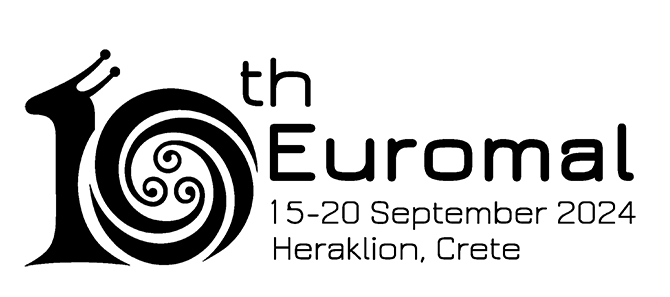
Registration for the Congress covers the following:
- Access to the sessions
- Congress gift package
- Coffee and snacks during the breaks
- Welcome Icebreaker with drinks and snacks
The registration fees do not include the Congress Dinner, which is not compulsory and for which there will be a separate charge.
On desk payments during the conference will be available but should be made either in cash or through the on-line registration platform.
Abstract Submission

Guidelines for the submission of abstracts
The deadline for abstract submission is unfortunately over. In case you still wish to submit an abstract please send it via email at euromal2024@gmail.com and your request will be strictly examined by the Organizing Committee.
Before submitting an abstract, the submitting author has to register at the congress.
You should use this file as a template for submitting your abstract.
Each registered congress attendee is allowed to submit up to two abstracts (of course, they can participate in many more – there is no limit). However, if he/she participates in more than two presentations, then another author must be registered to submit them. Authors are responsible for the quality of the abstracts they submit, as they will be published exactly as sent and there will be no editing or proofreading of the texts after submission.
Authors may indicate their preference for oral or poster presentations as well as for the thematic section. All abstracts will be submitted via the electronic submission form. All abstracts will be subjected to a scientific review by the Scientific Committee which will decide on their acceptance. If there are comments and suggestions from the Committee, they will be sent to the authors of the abstracts who will be invited to submit the final version of their abstracts within ten (10) calendar days. All abstracts will be included in the Book of Abstracts of the Congress, which will be published under the coordination of the Scientific Committee and posted on the Congress website.
Awards
The three poster and the three oral presentations for early career malacologists selected by the congress attendees as the best will be awarded. All communications are eligible for an award unless the authors indicate that they do not wish to participate in the competition.
Instructions

Oral Presentations
Regarding oral presentations, the slot for each communication will be up to 15 minutes (10-12 minutes for presentation and 3-5 minutes for questions).
Invited talks and Special Session talks will be of duration as per the programme.
Speakers should bring their presentation (both in pptx and pdf format) to the Congress Secretariat, at the Congress venue, either when registering on 15 September or at least one day before their talk. Alternatively, they can send their presentation electronically to euromal2024@gmail.com in order to be entered into the central presentation management system.
The file name of your presentation must be in roman characters and have the following format: Name_euromal2024_Number of presentation (1 or 2) (e.g., Smith_euromal2024_1).
Speakers presenting videos may use MPEG-4 (MP4) as the encoding format. They should ensure that their video files play well with either MS-Windows Media Player or VLC (www.videolan.org/vlc), which is available free of charge on all current operating systems.
A computer with PDF reader and Microsoft PowerPoint will be available. Personal laptops cannot be used for the presentation
Poster Presentations
The required poster size is A0, portrait orientation. Poster authors are expected to present their posters to the scientific community at the dedicated poster sessions. The Poster Session will be held on September 19, in the afternoon. Lunch and coffee breaks could also be opportunities to present the posters. Please take the opportunity to read other posters and exchange contact information. Poster presenters may want to have A4 copies of their posters and their business cards available for distribution.
Poster Mounting
All posters shall be mounted ahead of the poster session, in a numbered position. The list of poster numbers will be also available in the conference room. Please check that your poster is located on the correct board. Materials for mounting posters will be provided at the poster session venue. Posters shall be dismounted by the end of the congress, those that have not been removed will be disposed-off.
Printing your poster in Heraklion
If you would like to print your poster in Heraklion, you can choose the stationery store “KYVOS – The Copy Shop”, which is located at Leof. Dimokratias 91, Iraklio 713 06, 15 minutes walking distance from the venue. You can choose between two material types: Plastic material – PVC (27 €) or glossy paper (33 €). You will need to send a pdf version of your poster by 10/09/2024 at info@thecopyshop.gr using “EUROMAL 2024” in the subject of the email and informing the store about the selected printing paper type. As soon as your poster is printed, you will receive email notification by the store in order to receive it from the store at your convenience. The payment of the poster will be completed at the store.
Congress Events

Don’t miss the Congress Events!
Field Trips
Organizing Committee

- Sinos Giokas (Department of Biology, University of Patras)
- Katerina Vardinoyannis (Natural History Museum of Crete – University of Crete)
- Moisis Mylonas (Natural History Museum of Crete – University of Crete)
- Chrysa Doxa (Hellenic Centre for Marine Research)
- Elisavet Georgopoulou (Natural History Museum of Crete – University of Crete)
- George Iliopoulos (Department of Geology, University of Patras)
- Danae Karakasi (Natural History Museum of Crete – University of Crete)
- Nefeli Kassari (Zoologisches Institut und Museum, University of Greifswald)
- Drosos Koutsoumbas (Department of Oceanography and Marine Biosciences, University of the Aegean)
- Paraskevi Niki (Penny) Lampri (Hellenic Centre for Marine Research)
- Leonidas Maroulis (Natural History Museum of Crete – University of Crete)
- Aris Parmakelis (Department of Biology, National & Kapodistrian University of Athens)
- Dimitris Poursanidis (Foundation for Research and Technology – Hellas)
- Nella Radea (Department of Biology, National & Kapodistrian University of Athens)
- Alexandra Staikou (Department of Biology, Aristotle University of Thessaloniki)
- Danae Thivaiou (Department of Geology, Naturhistorisches Museum, Basel /NMB – Switzerland)
- Eleftherios Bitzilekis (Natural History Museum of Crete – University of Crete)
- Christos Psarras (Department of Geology & Geoenvironment, National & Kapodistrian University of Athens)
- Evangelia Rentoumi (Department of Geology and Geoenvironment, National and Kapodistrian University of Athens)
Scientific Committee

Ηere is the updated list of the scientific committee in alphabetical order. The list is subject to change until we confirm all the speakers and sessions so make sure to check regularly for any updates.
- Sthefane D’Ávila (Universidade Federal de Juiz de Fora, Juiz de Fora, Brasil)
- Marija Bošnjak (Croatian Natural History Museum, Zagreb, Croatia)
- Celia Bueno (Natural History Museum of Neuchâtel, Neuchâtel, Switzerland)
- Radovan Coufal (Department of Botany and Zoology, Faculty of Science, Masaryk University, Brno, Czechia)
- Stefanos Dailianis (Department of Biology, University of Patras, Greece)
- Chrysa Doxa (Hellenic Centre for Marine Research, Greece)
- Elisavet Georgopoulou (Natural History Museum of Crete – University of Crete, Greece)
- Issaad Kawther – Ezzine (Laboratoire de Génétique, Biodiversité et valorisation des Bio-ressources, Institut Supérieur de Biotechnologie de Monastir, Tunisia)
- Paraskevi Niki (Penny) Lampri (Hellenic Centre for Marine Research, Anavyssos, Greece)
- Océane Lapauze (Naturhistorisches Museum Basel, Basel, Switzerland)
- Maria Lazaridou (Department of Biology, Aristotle University of Thessaloniki, Greece)
- Janine Mazenauer (Naturhistorisches Museum Basel, Basel, Switzerland)
- Vasilis Michailidis (Department of Biology, Aristotle University of Thessaloniki, Greece)
- Sonia Barbosa dos Santos (Instituto de Biologia Roberto Alcantara Gomes, Universidade do Estado do Rio de Janeiro, Rio de Janeiro, Brasil)
- Lenita de Freitas Tallarico (Laboratório de Parasitologia – Malacologia, Instituto Butantan, São Paulo, Brasil)
- Danae Thivaiou (Naturhistorisches Museum Basel, Basel, Switzerland)
- Katerina Vardinoyannis (Natural History Museum of Crete – University of Crete)
- Quentin Wackenheim (Laboratoire de Géographie Physique, CNRS- Paris 1 Panthéon Sorbonne -UPEC University, France)
- Argyro Zenetos (Hellenic Centre for Marine Research, Greece)
Congress Location
The congress will take place at the Cultural Conference Centre of Heraklion
Heraklion’s airport “Nikos Kazantzakis” (coded as HER), is around 15 minutes from Heraklion city and it is also connected with low-cost flights. Airport is served by local buses. The stop is in front of the terminal building. Alternative ways are by taxi or by car. For further information please visit the website: https://www.heraklion-airport.




